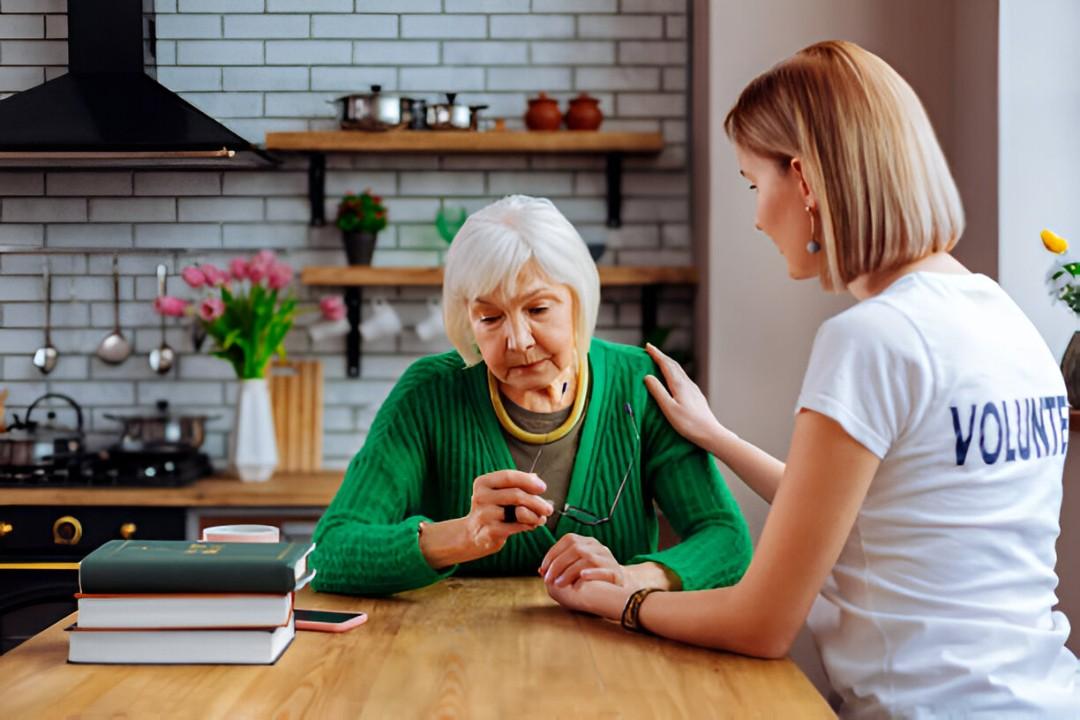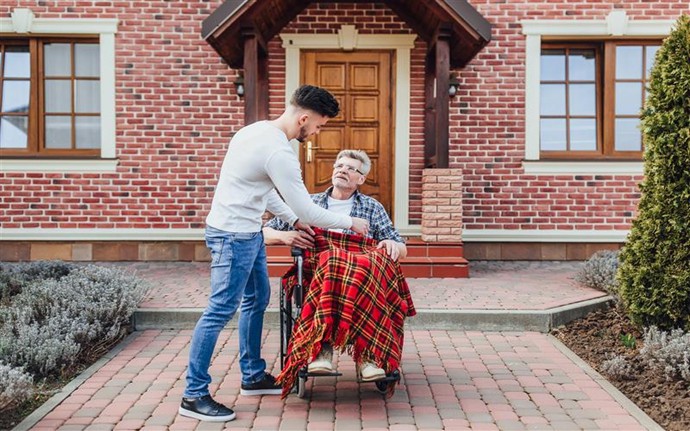Key Takeaways
- Home care offers personalised, familiar support for seniors with cognitive decline
- Routines and consistent caregiving can ease anxiety and confusion
- Early planning ensures safer living environments and long-term comfort
- Family involvement enhances emotional stability and care continuity
- Prime 1 Care provides tailored in-home services across Australia
Understanding Cognitive Decline
Cognitive decline refers to a gradual deterioration of memory, thinking, and reasoning skills that can affect daily functioning. According to Dementia Australia, it’s estimated that over 400,000 people are living with dementia, a number that is expected to increase as the population ages.
Cognitive decline refers to the gradual loss of memory, thinking, and reasoning skills. It can stem from various causes, such as:
- Alzheimer’s disease
- Vascular dementia
- Parkinson’s-related cognitive disorders
- Mild cognitive impairment (MCI)
Symptoms of cognitive decline can range from mild forgetfulness to more profound issues, such as difficulty recognising loved ones, confusion, or a decline in problem-solving abilities. For seniors, this can lead to frustration, anxiety, and depression, making it essential to offer both practical and emotional support.
Creating a Safe Home Environment
The first step in supporting seniors with cognitive decline is ensuring their living environment is safe. As cognitive function declines, seniors may experience disorientation, memory lapses, and even difficulty with basic tasks such as cooking or personal care. To mitigate potential risks, here are some important steps to take:
1. Eliminate Fall Hazards
Falls are a leading cause of injury among older adults, particularly those with cognitive decline. Remove any obstacles, such as rugs or furniture, that could cause tripping. Install handrails in hallways and bathrooms for added stability, and consider using non-slip mats in the shower or bathtub.
2. Simplify the Home Layout
Keep the home layout clear and straightforward to prevent confusion. Avoid cluttering hallways with furniture, and ensure the paths between rooms are easy to navigate. Label rooms and important items, such as the bathroom and bedroom, to help with orientation. Clear signs can also assist with daily tasks, like a “Do not forget to take your medication” note near the kitchen.
3. Safety in the Kitchen
The kitchen can be a particularly hazardous area for seniors with cognitive decline, due to the potential for forgotten cooking times, misuse of appliances, or mishandling of sharp objects. Use appliances with automatic shut-off features, remove knives or dangerous tools from sight, and install locks on cabinets containing chemicals or cleaning products.
4. Good Lighting
Proper lighting is crucial for seniors, especially those who may experience visual impairments alongside cognitive decline. Ensure that all areas of the home are well-lit, particularly stairs and hallways. Motion-sensor lights can help seniors avoid falls during the night.
Engaging and Stimulating Activities
Mental stimulation plays a crucial role in slowing the progression of cognitive decline. While it won’t cure dementia, keeping the brain active can help seniors retain their cognitive functions longer and improve their quality of life.
1. Memory Games and Puzzles
Engaging in activities like jigsaw puzzles, crossword puzzles, and memory games can help keep a senior’s mind sharp. There are many online resources, as well as apps designed for seniors, which can offer enjoyable exercises to boost cognitive abilities.
2. Creative Hobbies
Encourage seniors to continue participating in hobbies that stimulate the mind. Whether it’s painting, knitting, gardening, or even simple cooking, engaging in creative activities fosters a sense of accomplishment and can bring joy to their day.
3. Physical Exercise
Exercise or physical activity benefits both physical health and cognitive function. Research shows that regular physical activity can improve memory, boost mood, and even slow cognitive decline. Encourage seniors to take daily walks, participate in chair exercises, or join gentle yoga classes designed for seniors.
4. Social Interaction
Loneliness and isolation can worsen the symptoms of cognitive decline. Engaging socially with family, friends, and peers can provide emotional support and cognitive benefits. Regular visits from family members or even participating in online video calls can help seniors feel connected and supported.
Providing Emotional and Psychological Support
Creating a safe and engaging environment is vital, but meeting the emotional and psychological needs of seniors with cognitive decline holds equal importance. These individuals often experience frustration, confusion, or a sense of losing their independence, leading to feelings of anxiety and depression. Families should also take time to choose respite providers who can offer temporary relief and professional care, ensuring both the senior and their caregivers receive the support they need.
1. Maintain Routines
Establishing and sticking to a routine can provide structure and a sense of stability for seniors. It helps reduce anxiety and gives them something familiar to rely on each day. For example, having meals at the same time, bedtime at a set hour, and regular activities can help maintain a sense of control and comfort.
2. Offer Reassurance
Be patient and offer reassurance when needed. Seniors with cognitive decline may forget things multiple times in a day or become distressed over situations they don’t fully understand. Remaining calm, compassionate, and offering gentle reminders can help reduce agitation and confusion.
3. Provide Opportunities for Independence
Wherever possible, allow the senior to maintain a sense of autonomy. Small tasks, such as choosing their outfit, helping with light housework, or deciding what to eat, can help preserve their dignity and encourage independence.
4. Seek Professional Help When Needed
While caring for a senior with cognitive decline can be rewarding, it’s also physically and emotionally challenging. Dementia related cognitive decline requires patience, consistency, and informed support. It’s important to know when to seek professional help. In-home care services can provide medical and personal assistance, while organisations such as Dementia Australia offer valuable resources and support networks for both families and caregivers.
When to Seek Additional Help
As needs evolve, professional support becomes necessary. Indicators might include:
- Increased confusion or aggression
- Wandering or night-time restlessness
- Personal hygiene neglect
- Difficulty managing medications
Prime 1 Care offers tailored support solutions that grow with your family’s needs.
Conclusion
Supporting seniors with cognitive decline at home demands consistency, knowledge, and compassion. With Prime 1 Care by your side, you gain a trusted partner to navigate this journey with professional care that respects dignity and fosters familiarity. Need professional support tailored to your family’s needs? Contact us today for a personalised consultation. We are dedicated to guiding and supporting you through every step of the journey.
FAQs:
What are the early signs of cognitive decline in seniors?
Memory lapses, disorientation, difficulty finding words, and changes in personality or judgment are common early indicators.
Can someone with dementia live at home safely?
Yes, with proper support and home modifications, many individuals with dementia can remain safely in their own home for years.
What services does Prime 1 Care offer for seniors with cognitive issues?
We provide personalised care plans including daily task assistance, medication support, emotional companionship, and mental engagement activities.
How do I know if my loved one needs professional care?
If you notice increased confusion, frequent wandering, aggression, or neglect of personal care, it’s time to seek professional assistance.
Does Prime 1 Care support government-funded home care packages?
Yes, we assist with NDIS and Aged Care packages to ensure clients get the support they’re eligible for.
Can family members be involved in care planning?
Absolutely. We encourage family involvement to create care plans that align with the client’s routines, history, and preferences.






